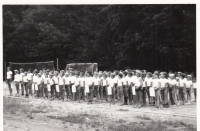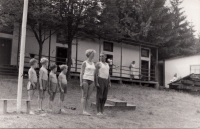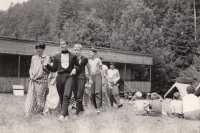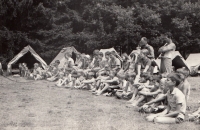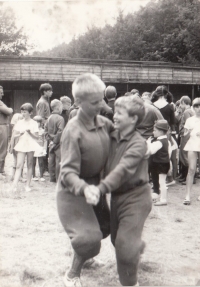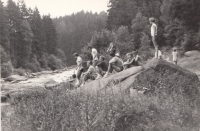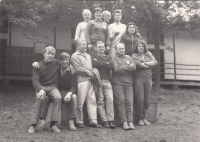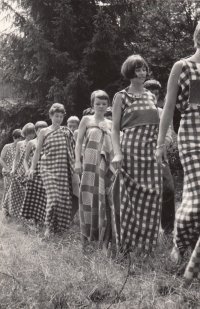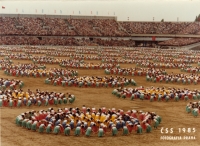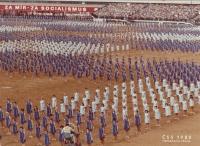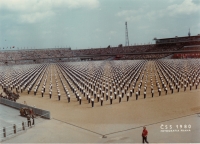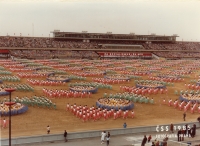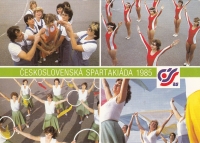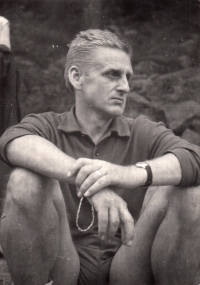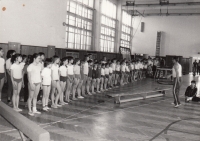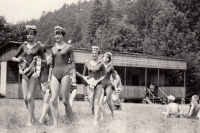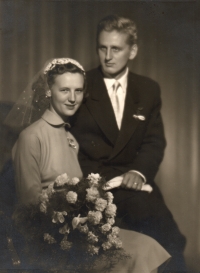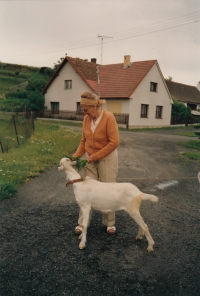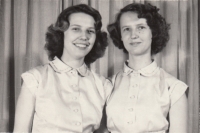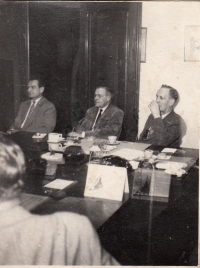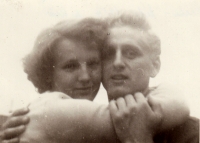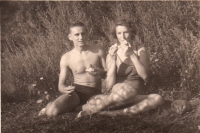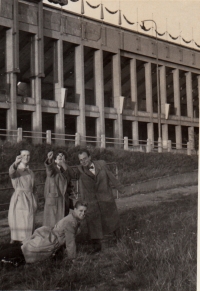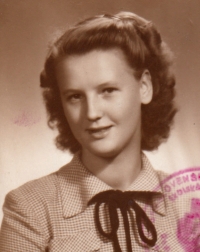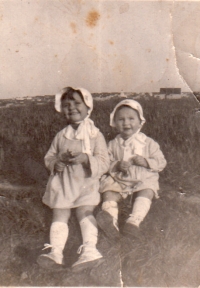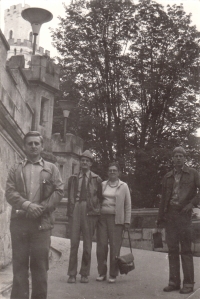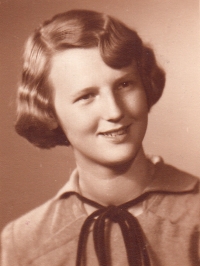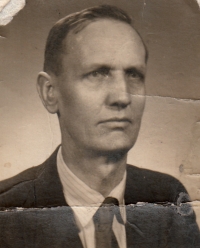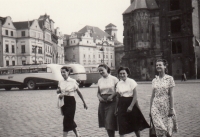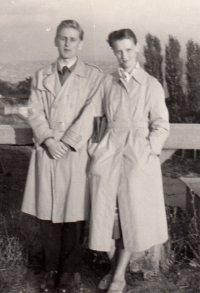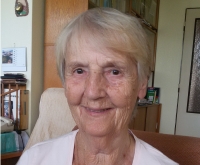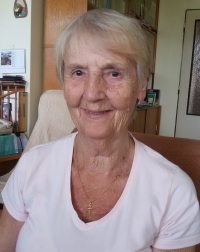At the Sokol meeting in 1948 we passed Gottwald in silence

Download image
Vlasta Peštová, neé Klasová was born on November 28, 1934 in Pyšely to Marie and František Klasovi. She grew up on the outskirts of Prague in Michle, where she spent beautiful childhood. She had 14 months older sister Věra. Her father was a bank clerk in the Agricultural Savings Bank located in Senovazne Square in Prague. In 1953, Vlasta graduated from the Michle Grammar School, then she went to work and started to study at the University of Mechanical Engineering in the evenings. In 1955 she got married and did not finish the school. She worked as a drafter at Zdravoprojekt, then until retirement at the Railway Research Institute as a specialist. An important role in her life was played by Sokol and based on its principles she was brought up by her mother from her early childhood. In 1948 Vlasta as a fourteen-year-old junior participated in XI. Sokol meeting in Strahov, which was something like an anti-communist demonstration. After Sokol was terminated, her rich sports activities were replaced by a grammar school in Prague - Michle. She returned to the gym of the former Sokol in 1963 as a children’s instructor. Among her most beautiful life experiences belongs children’s camps in Ledeč nad Sázavou, where she and her husband were supervisors in the sixties and they practised the principles of Sokol there. She practiced with children until the age of 85 in Vinohrady Sokol (during the communist era it was under the title ZRTV - basic and recreational physical education).
